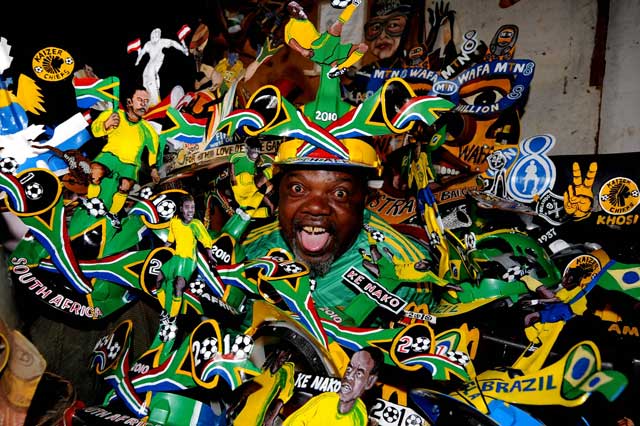Mission Of The Month: Going to South Africa for the footie? Be on the ball
A series of dispatches by diplomats from British Embassies and High Commissions around the world

Your support helps us to tell the story
From reproductive rights to climate change to Big Tech, The Independent is on the ground when the story is developing. Whether it's investigating the financials of Elon Musk's pro-Trump PAC or producing our latest documentary, 'The A Word', which shines a light on the American women fighting for reproductive rights, we know how important it is to parse out the facts from the messaging.
At such a critical moment in US history, we need reporters on the ground. Your donation allows us to keep sending journalists to speak to both sides of the story.
The Independent is trusted by Americans across the entire political spectrum. And unlike many other quality news outlets, we choose not to lock Americans out of our reporting and analysis with paywalls. We believe quality journalism should be available to everyone, paid for by those who can afford it.
Your support makes all the difference.This year's Fifa World Cup will be the third in a hat trick of major international sporting events with British involvement that South Africa has hosted, following the recent British Lions rugby tour and the England cricket tour. They are exciting for travelling sports fans, but for our consular team they involve 10 months of careful preparation even before a ball is thrown, bowled or kicked.
At the moment, we are busy using our local knowledge to ensure the safety of Brits through a dedicated World Cup 2010 consular campaign called "Be on the Ball". For example, a point some people miss is that the World Cup is in June, which is South Africa's winter. In June 2007, lions were shivering in Johannesburg Zoo, dusted in snow. Camping is not a great option and hotel accommodation will be limited. Half a million British passport holders visit South Africa each year. Crime is high here; an average of two British passports are reported stolen every day.
A major issue is the distance between stadiums. Cape Town to Polokwane (or Pietersburg if you have an old map) will take more than 13 hours to drive. The roads are good and South Africans drive on the left, but that's where the similarities end. Overtaking on both sides, using the hard shoulder and jumping traffic lights are common practices here. In 2008, there were more than 100 fatal crashes a month.
South Africa will be ready to host a real party: the grounds should be full, it will be colourful, fun and echo to the sounds of the vuvuzela, South Africa's legendary stadium trumpets. So come and enjoy the party – but be prepared and don't let avoidable trouble spoil it for you.
Mike Tiney is British vice-consul based in the British High Commission in Pretoria, South Africa. For travel advice on South Africa, and for travel everywhere else on the planet, see fco.gov.uk/travel. For advice on South Africa during the World Cup, visit fco.gov.uk/worldcup
Join our commenting forum
Join thought-provoking conversations, follow other Independent readers and see their replies
Comments